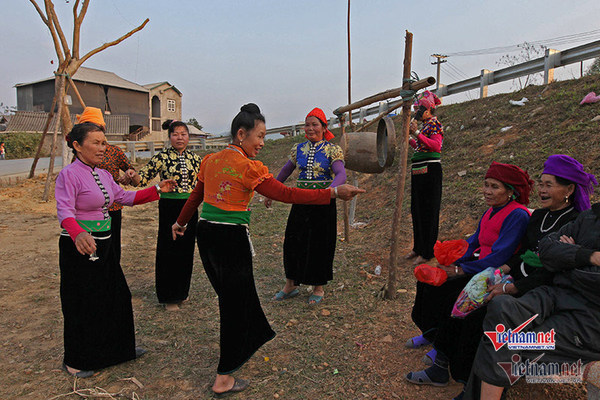 |
|
In the time of renovation, the country places people at the center of development in order to stimulate all potential of the entire country.
|
Along with perfecting the legal system, the Vietnamese State has reformed the organization and operation of judicial bodies, enhanced the roles and functions of elected bodies, improved the effectiveness of State administrative agencies, and built a state of law to ensure human rights.
Dr. Pham Ngoc Anh, from the Ho Chi Minh National Academy of Politics and Administration, asserted in his studies released several years ago that in 1986 the sixth National Congress of the Communist Party of Vietnam (CPV) officially announced the renovation policy, with the main content of transforming the economy from a centrally planned economy to a multi-sector economy operating under the socialist-oriented market mechanism with the management of the State; democratizing social life on the basis of building a state of law, a state of the people, by the people and for the people; opening the door to enhance exchange and cooperation with the outside in the spirit of Vietnam willing to make friends with other countries, striving for peace, cooperation and development.
In that spirit, by placing people at the center of all policies, considering people as both a driving force and a goal of development, the above-mentioned innovation policy not only affects the country’s economy and society but also strongly dominates the awareness and in fact has ensured human rights in Vietnam in recent years.
Dr. Pham Ngoc Anh gave some evidence: In the 1992 Constitution (Article 50), the first time the term “human rights” was mentioned it affirmed: “In the Socialist Republic of Vietnam, human rights, particularly political, civil, economical, cultural and social rights are respected, embodied in civil rights and enshrined in the Constitution and laws."
Particularly, in the field of legislation, from 1996 to 2002 the State issued 13,000 legal documents of all kinds, including more than 40 laws and codes, over 120 ordinances, nearly 850 legal documents of the Government and over 3,000 legal documents of ministries and agencies, which have comprehensively "internalized" international human rights conventions that Vietnam has ratified or acceded to since the beginning of the 80s of the twentieth century and today.
In terms of civil and political fields, five important rights were added to the 1992 Constitution, including property rights (including means of production); business freedom rights; the right to go abroad and return home according to the law; the right to get information under the law; equal rights of religions; the right not to be regarded as guilty and to be punished without a conviction and to be punished without a conviction of the court. In addition, the 1992 Constitution said that the State protects the legitimate rights and interests of overseas Vietnamese and broadens the protection and assistance of vulnerable social groups.
In order to ensure the implementation of the people's economic, social and cultural rights in the new period, since 1986, in addition to the 1992 Constitution, the State has issued many important legal documents. These include the Civil Code (1995), the Labor Code (1994), the Education Law (1998), the Law on Protection, Care and Education of Children (1991), the Law on Universal Primary Education (1991), and the Ordinance on the Disabled (1998) among others.
Besides establishing a legal corridor, the State has developed and implemented a series of socio-economic policies and programs to promote working rights, expanding and developing local professions, supporting businesses, expanding international cooperation on vocational training and labor export ...
Ensuring the right to access to education: since Vietnam gained its independence, the State has paid great attention to the people's right to education. The guidance for building the country during the transition period to socialism established by the Party in 1991 identified education as a top national policy. This viewpoint is institutionalized in Article 35 of the 1992 Constitution: "Education and training are the top national policies." This is the ideological basis for realizing the people's right to access to education in the new period.
All of this is undeniable evidence that the thinking and awareness of human rights in Vietnam have been increasingly renewed and perfected.
Thu Thuy
 In the time of renovation, the country places people at the center of development in order to stimulate all potential of the entire country.
In the time of renovation, the country places people at the center of development in order to stimulate all potential of the entire country.